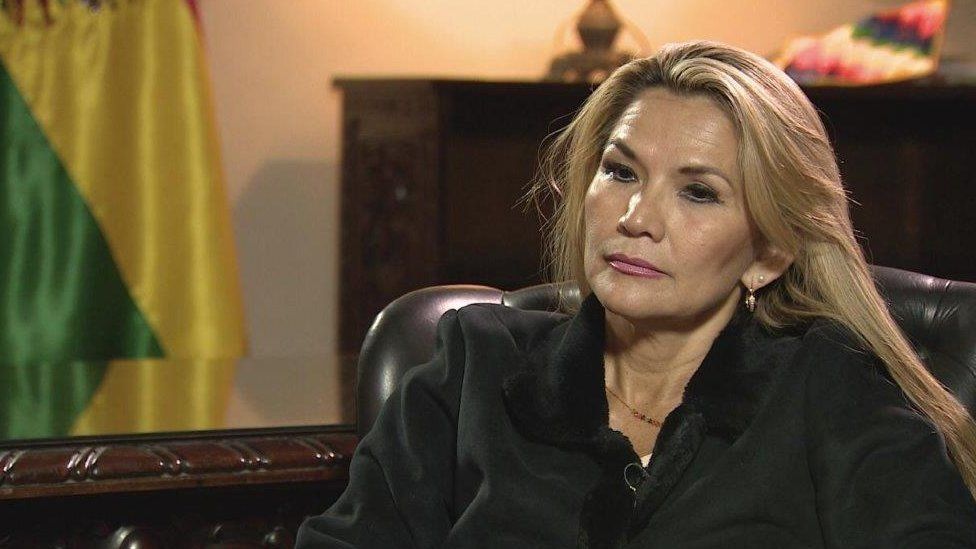RIO DE JANEIRO, BRAZIL – On Monday, June 6, a Bolivian court will resume the trial against former Bolivian president Jeanine Áñez for the alleged coup against her predecessor Evo Morales in 2019, the judicial public registry reported.
The First Anticorruption Sentencing Court of the department of La Paz announced the decision after learning of a resolution of the Constitutional Court that rejected, last week, a lawsuit by the defense of Áñez against the criminal process.
“In such virtue, to continue with the oral trial, a hearing for the continuation of the trial is scheduled for June 6, 2022, at 2 PM”, says the resolution published by the Judicial Registry System (Sirej).

The process will be done in semi-presential mode, so the prison authorities must enable a virtual platform for the former president and the necessary medical support.
The trial was suspended at the beginning of May when the former head of state’s lawyers filed a complaint of unconstitutionality before the Constitutional Court (TC).
Áñez assumed power in November 2019 amid a strong social convulsion after Morales’ resignation. Her defense insists that she is entitled to a trial of responsibilities or privilege and not one by the ordinary justice system.
APPEAL AGAINST THE TC RULING
The lawsuit before the TC argued that the typifications of the crimes against the 54-year-old former president, such as breach of duties and resolutions contrary to the Constitution, are unconstitutional.
The lawyers of the ex-president, who has been preventively imprisoned since March 2021, filed a new appeal against the ruling of the Constitutional Court.
They argued that the process should not be resumed next week until the new legal consultation is resolved.
Jeanine Añez replaced leftist President Morales, who had ruled Bolivia since 2006.
Morales’ party says he was removed from power through a coup d’état, with the participation of the European Union (EU), Brazil, Ecuador, the Catholic Church, and local right-wing leaders.
Instead, his opponents defend that there was a popular uprising against Morales, whom they accuse of having committed fraud in the 2019 elections when he was seeking a fourth term in office until 2025.

